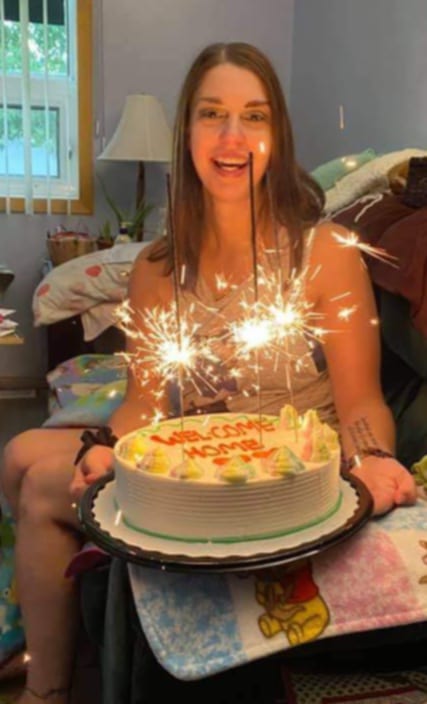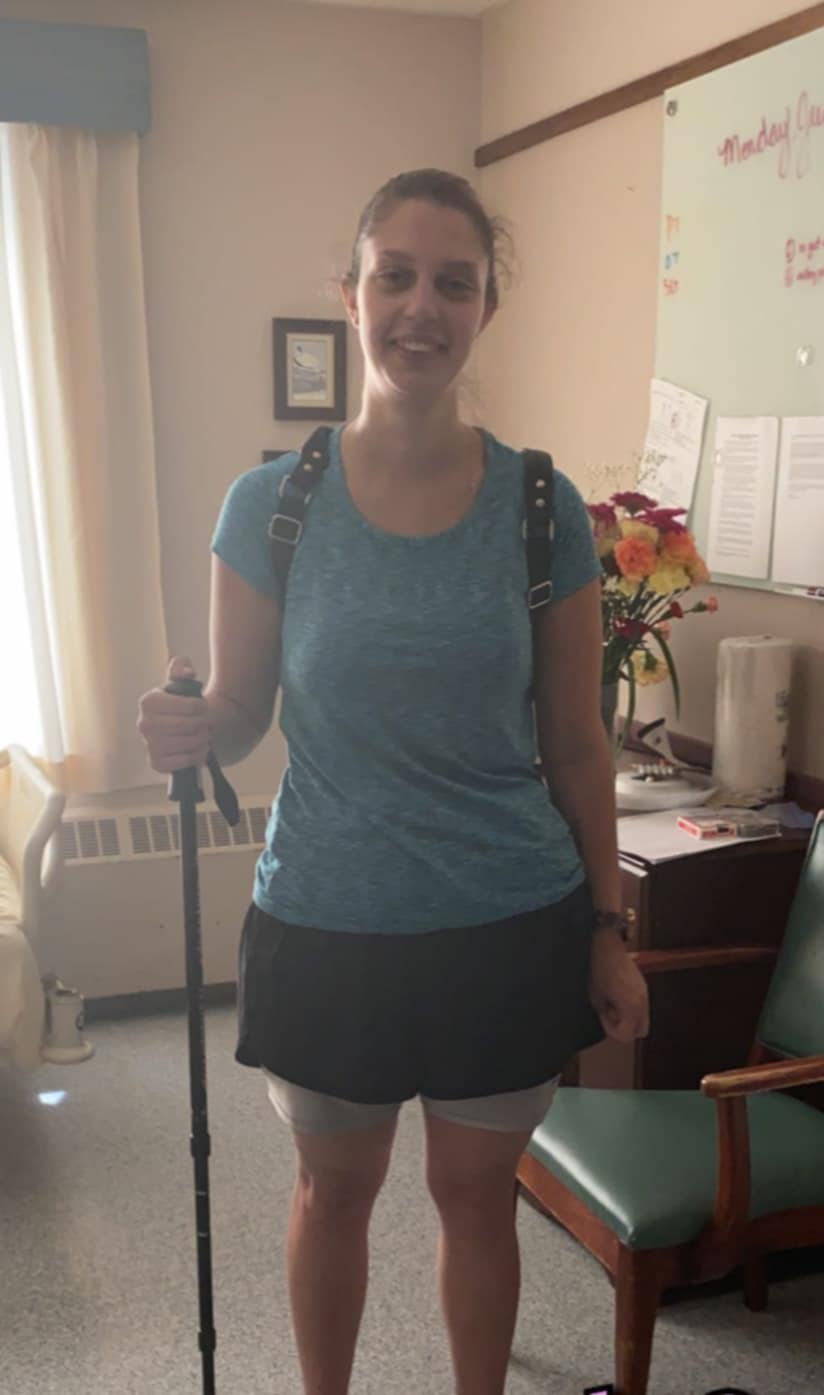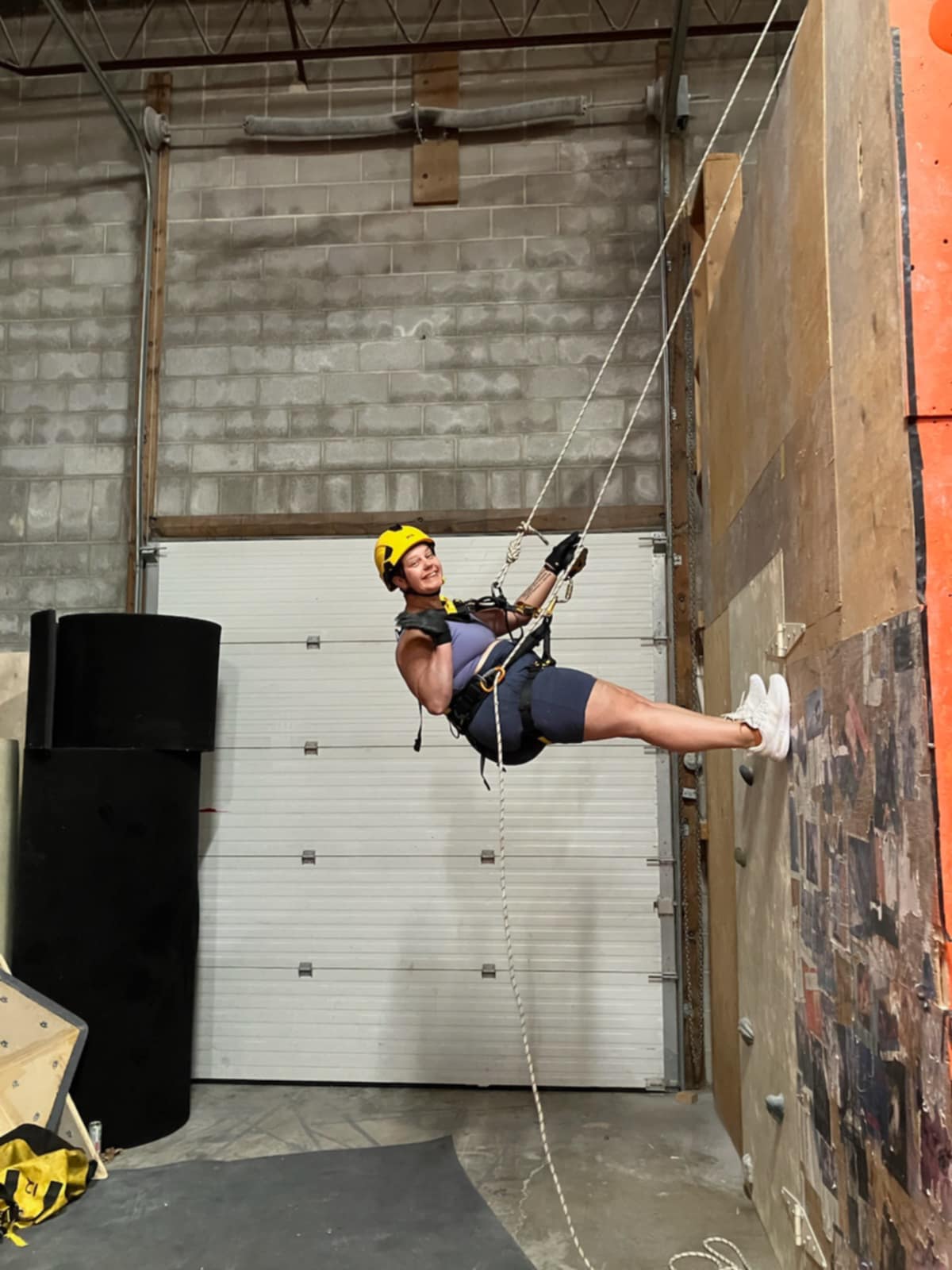Five years after suffering a life-altering stroke at just 27 years old, Sara Le Lievre is hoping and preparing to rappel down the 19-storey Manitoba Hydro building in downtown Winnipeg, all to mark her milestone of recovery and raise awareness about strokes in young people.
Le Lievre, now 32 years old, is participating in the annual Easter Seals Drop Zone, a fundraiser organized by Manitoba Possible, a non-profit supporting people with disabilities. The event, which challenges participants to rappel down Manitoba Hydro building, serves as both a personal celebration and a public campaign for Sara.
"This year marks my fifth year of recovery," said Le Lievre "August is Stroke Recovery Month in Manitoba, and I'm doing this not only for myself but to raise awareness about stroke and stroke recovery, especially in young people."

Le Lievre's stroke occurred in 2020, during the height of the COVID-19 pandemic. What started as neck pain led her to seek treatment from a chiropractor, a decision that unknowingly set off a medical crisis.
"I had a tear in my vertebral artery, which caused a blockage that led to the stroke," she explained. "They're pretty confident the chiropractic adjustment caused the tear."
Initially misdiagnosed with vertigo, Le Lievre said she experienced a range of symptoms over a week and a half, including numbness, imbalance, and extreme fatigue. Despite multiple trips to the emergency department, her stroke wasn't identified until she spent 12 hours in the hospital and her speech began to deteriorate.
"I firmly believe I was having mini strokes leading up to it, but the symptoms weren't being recognized as stroke symptoms," she said. "You don't expect a 27-year-old to be having a stroke."
Her stroke affected the cerebellum, the part of the brain responsible for coordination and motor control, resulting in long-lasting cognitive impairments rather than physical ones. Le Lievre only returned to full-time work in late 2023 after three years of recovery.
"It was mostly brain fog, memory issues, and fatigue," she said. "It took a long time to build back my mental stamina."

Now, Le Lievre is turning her journey into advocacy. She emphasizes the importance of self-awareness and self-advocacy in the healthcare system.
"You know your body better than anyone else. If you think something is wrong, speak up and keep pushing," she said. "If you can't advocate for yourself, bring someone who can."
She also hopes her story helps debunk the misconception that strokes only happen to the elderly.
"Stroke doesn't discriminate by age. I know people younger than me who've had strokes. People need to know the signs and listen to their bodies," she said, referencing the BE FAST acronym (Balance, Eyes, Face, Arms, Speech, Time) for stroke awareness.
As for the Drop Zone itself, Le Lievre recently completed a practice rappel at a rock-climbing facility and is looking forward to the main event.
"The scariest part is just going over the edge," she laughed. "But once you start coming down, it's actually really fun."
Though she doesn't see herself as having a physical disability, Le Lievre acknowledges the reality of what she calls 'invisible disabilities.'
"Just because someone looks fine on the outside doesn't mean they're not facing challenges," she said. "That's another piece I try to raise awareness about, too."
To participate, each individual must raise at least $1,500. Le Lievre is still working toward that goal and encouraging donations.
Those interested in supporting her and making a donation can visit the Easter Seals Drop Zone Winnipeg website.

Sign up to get the latest local news headlines delivered directly to your inbox every afternoon.
Send your news tips, story ideas, pictures, and videos to news@portageonline.com.
PortageOnline encourages you to get your news directly from your trusted source by bookmarking this page and downloading the PortageOnline app.
